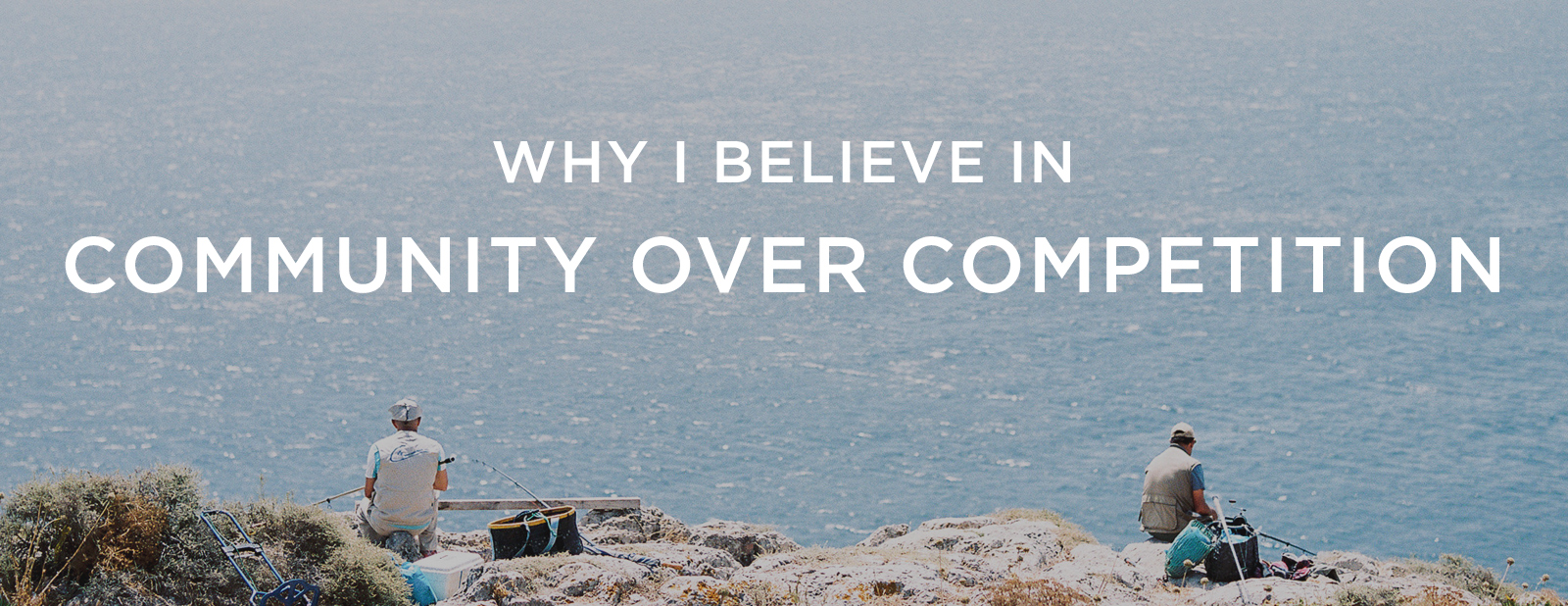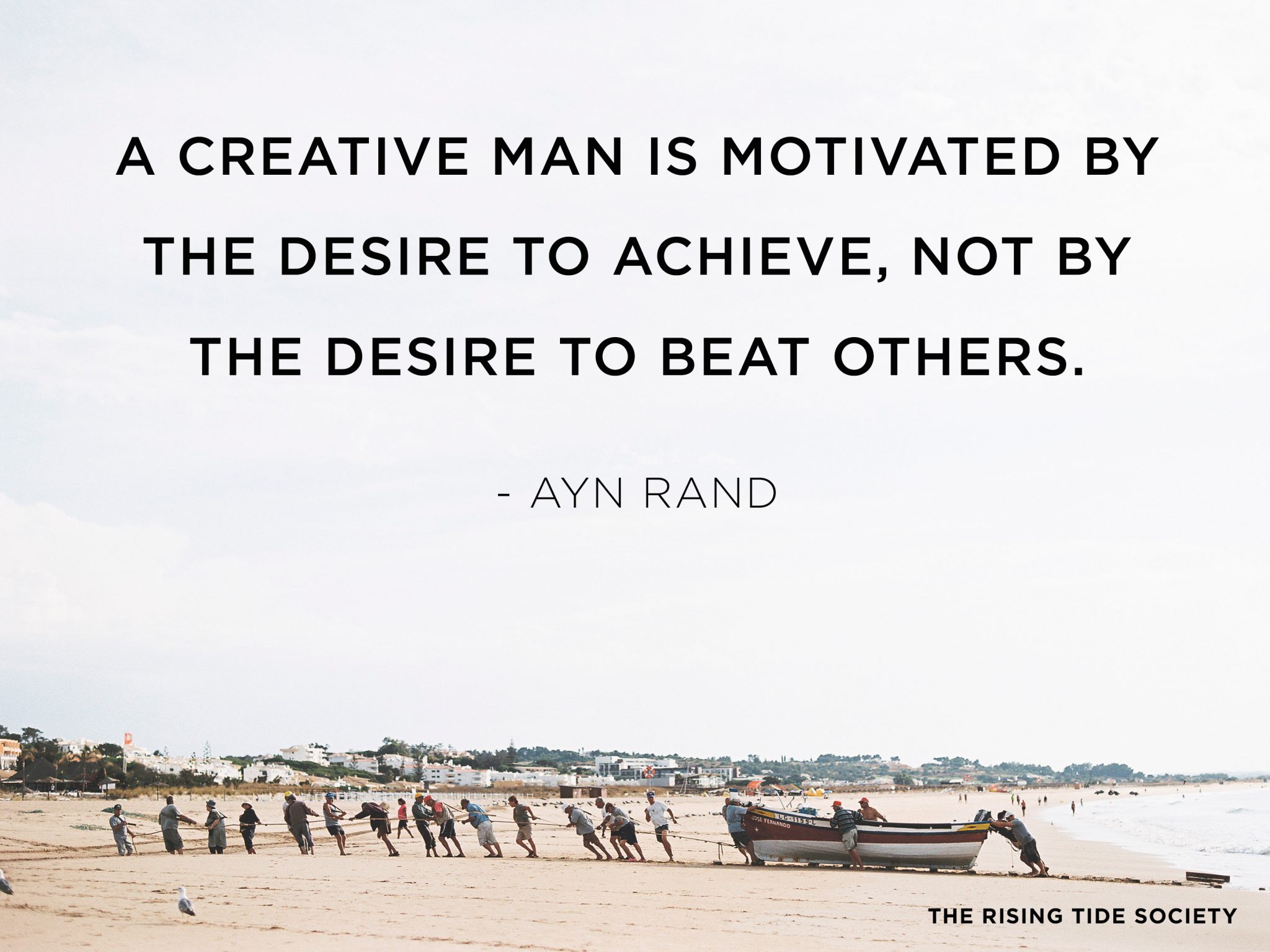
As iron sharpens iron, so one person sharpens another. – Proverbs 27:17
I love competition. It’s part of civilization’s foundation. It’s the catalyst of progress. Society is better because people compete.
I also love community. People were designed to be in communion with one another. We are not meant to be alone, and lives are enriched by strong family bonds and friendships. Life is better when it’s lived alongside, and for, others.
SO WHAT IS COMMUNITY OVER COMPETITION?
Community over competition is competition rightly ordered–it’s putting relationships before opportunity. It’s an understanding that the best businesses serve others. Yes, the best businesses serve others–their customers lives are enriched through the company’s products or services.
Competition is healthy when it’s not at the expense of others. It was never meant to hold people back or put people down, but to push people forward–in both winning and losing. Competition is a healthy part of life, but life is not a competition. Life is about relationships.
The best businesses aren’t those who are concerned with how much of “the pie” their competitors are taking; rather, the best businesses are concerned with how to best serve their customers. This means business is inherently community-based.
And–to be clear–people will “lose.” Businesses will fail. Some won’t find their niche and others won’t manage their businesses well. And some will fail before they start because their owners don’t believe they can do it. Unfortunately this often because others told them they couldn’t.
But there is a difference between a business failing because it did not find it’s niche or didn’t serve its clients well, and a business failing because other business owners were discouraging or deceptive.
Community over competition isn’t a call to prop up businesses that don’t serve others well. It isn’t a call to undercut the competition, or to accept some form of fallacious, deprecative humility where you put yourself down to lift others up. But it is a call to serve others.
Living out community over competition does sometimes run counter to our nature. I’m not good at it sometimes. And I have the audacity to use the hashtag.
But while I may have some serious shortcomings putting relationships before opportunity, this is not an indication that I shouldn’t strive to do otherwise. Jealousy and resentment of others’ successes may be a “normal human response,” but it does not mean it’s a good response. We should strive to enter into other people’s joy.

I’ve had the privilege of being the head coach of a high school boys’ varsity lacrosse team for the last two years. And in those two seasons we have won two state championships in a competitive class in a competitive state.
What do I tell my boys at the beginning of the season? I remind them that they have three focuses: To play hard for the guy next to them, to get better every day, and to have fun. We emphasize the importance of being a good teammate and striving to be better, but don’t talk much about winning. We know that if we do those things well, winning will come. And if it doesn’t, the season is still successful because it’s been built on relationships and hard work.
Our focus is on us. Ayn Rand once said, “The creative man is motivated by the desire to achieve, not the desire to beat others.”* When we’re preoccupied with what others are doing, we become distracted. Isn’t it the same in business and life? The problems begin when we become preoccupied with everyone else’s work and social media feed.
I think if we took a moment to reflect on anything we’ve ever achieved in life–whether it be academics, athletics, or career–we could create a list of people who were integral to that achievement. Life is about people, relationships, and community. It’s about loving and serving others well.
One of the best ways to live out community over competition is to practice gratitude. When we’re thankful, we’re not fearful. And when we’re not fearful, we’re not insecure. When we’re thankful, we’re full, and we share that spirit of abundance with others (David Steindl-Rast says this more eloquently.)
As we reflect on our core values this week, I challenge you to make a list of three people you’re grateful for that helped you get to where you are now. Send these people a note, email, or mention them on social media. But be sure to remind them how grateful you are for their friendship and support.
* A big thanks to Andrew Smith for the introducing me to the Ayn Rand quote.



